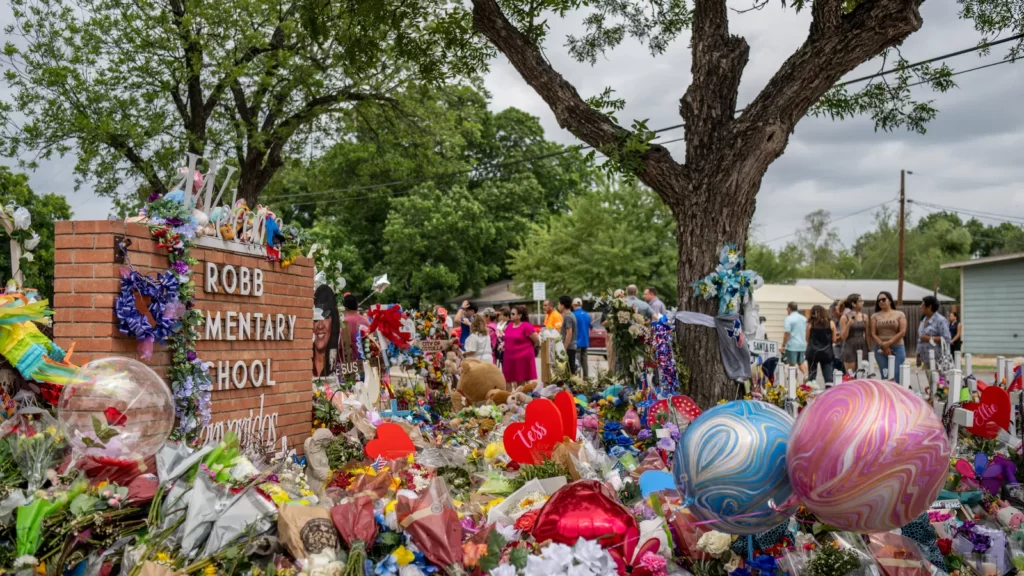Texas Gov. Greg Abbott (R) announced Tuesday that he has declared the city of Uvalde a state of disaster following a deadly mass shooting that killed 19 children and two adults at Robb Elementary School.
Why it matters: The declaration will accelerate state and local assistance and suspend regulations that would “prevent, hinder or delay necessary action,” according to a press release from Abbott’s office.
Details: The declaration also enables state agencies such as the Texas Division of Emergency Management to continue providing crisis response resources, including a temporary facility for community members who are seeking mental health support.
- The Texas Health and Human Services Commission is also working with local entities to provide a “single access point” for services, per the release.
What he’s saying: “The community of Uvalde … should not have to encounter any difficulty in receiving the support needed to heal,” Abbott said in a statement.
- “This disaster declaration frees up the many resources available through the State of Texas and local jurisdictions to continue providing much-needed support to all who were impacted and work in the community unencumbered by regulations unnecessary to respond to this tragedy.”
Yes, but: Texas authorities have so far provided public updates only in English, prompting criticism that the many Spanish speakers in the largely Latino community are being excluded, Axios’ Astrid Galván writes.
The big picture: Uvalde is still reeling in the face of police failures and mistakes in responding to the shooting.
- At least eight 911 calls were made from classrooms at Robb Elementary School in Uvalde between 12:03pm — half an hour after the 18-year-old gunman entered the building — and around 12:50pm, when Border Patrol agents and police finally stormed in and shot him dead.
- The Department of Justice has said it will conduct a review of local law enforcement’s response.
- Meanwhile, children who survived the shooting are speaking out about the horrors and anxieties that plague them — especially the fear that “it might happen again.”

Source: axios.com

